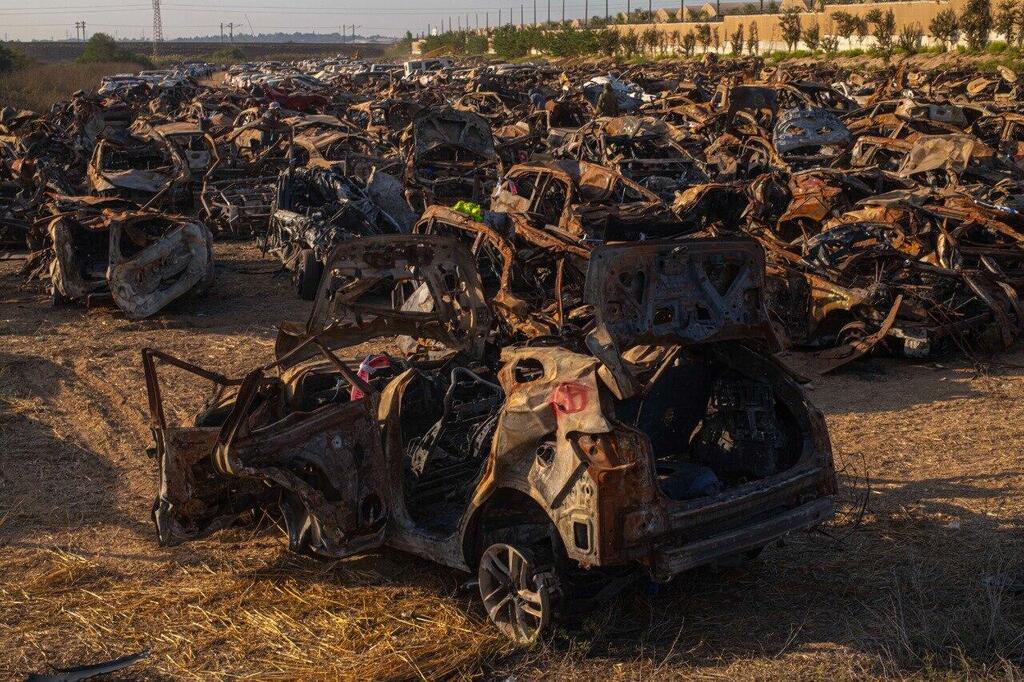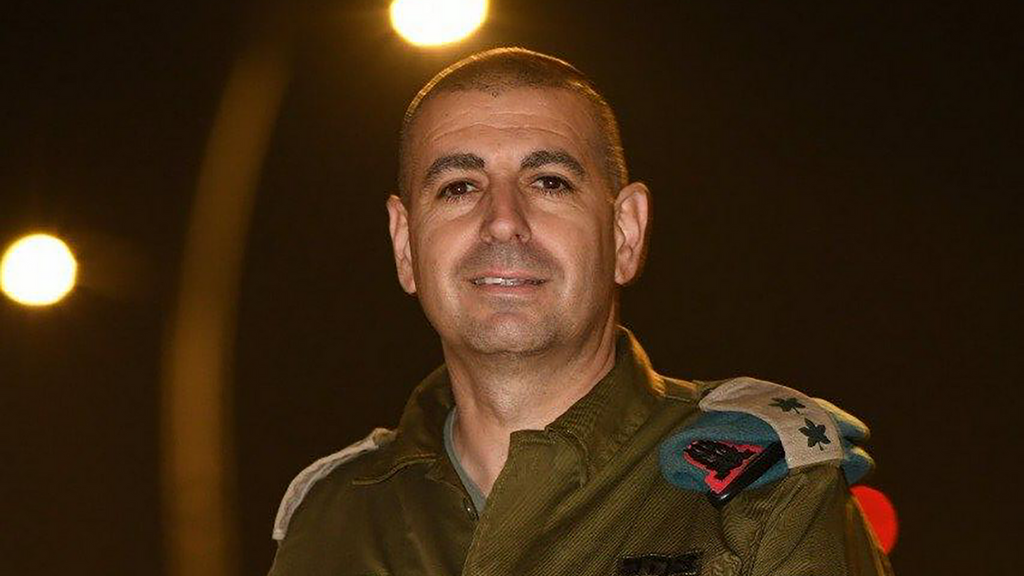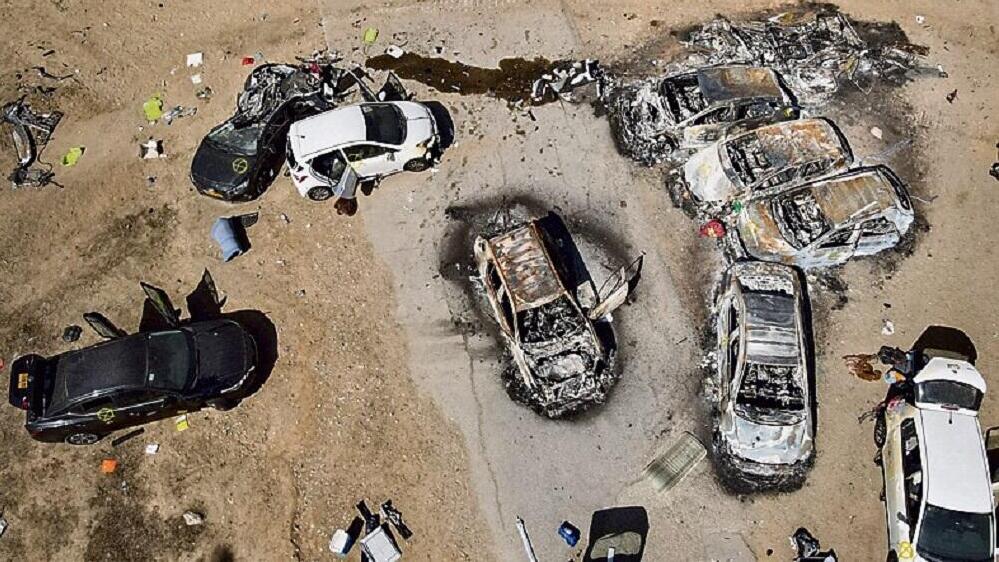They immediately joined the fighting on October 7, engaging Hamas terrorists who raided Gaza border communities. They rescued dozens and also retrieved bodies from the massacre at the Nova Music Festival.
Read more:
"Things from those hours are etched in my memory," said Lt. Col Roi Siboni, head of the Telecommunications Division at the IDF Ground Training Center. "We encountered challenging scenes—bodies found in restrooms, under the stage and even inside a garbage can. People tried to save themselves in any way they could and were murdered by Hamas terrorists from close range."
Siboni, 43, married with three children, resides in Rosh HaAyin. He was at home with his family on that dark Saturday. "Around quarter to seven, a family member called, asked how we were doing, and mentioned rocket attacks in the south and even in central Israel," described Lt. Col. Siboni. "We turned on the news and saw the red-alert banners. When my wife told me she saw suspicious vehicles in Sderot and Ofakim, I realized it was not a regular rocket alert and immediately geared up."
Shortly after 8am, Siboni bid farewell to his wife and children and headed toward the Tze'elim Training Base near Gaza. At a nearby junction, he met other officers, proceeded to the base to gear up and set out to assist soldiers and civilians in neighboring communities.
"From there, we made a detour and headed toward Ofakim. At the Urim Junction, we turned right toward Ofakim, but after about three kilometers, a police patrol stopped us. They requested that we enter the Urim camp, as there were reports from soldiers about the presence of terrorists there."
The team comprised five officers—three lieutenant colonels, one colonel and one brigadier general. "We arrived at the Urim Base through the back entrance after seeing the breach in the security fence. There were six motorcycles, and we heard a lot of gunfire," recalled Siboni.
"We managed to contact an officer inside who gave us an estimate on the number of terrorists. We decided to enter. We saw bags in front of our eyes and realized they were likely explosives. We quickly retreated to take cover, fired at the bags and they exploded. Inside the base, we encountered a company commander, who had been hit in the leg. I told her we would help take control of the situation."
Lt. Col. Siboni and Tactical Training Center Deputy Commander Lt. Col. Guy called for backup. They directed the injured officer to an ambulance and went back inside. Gunfire continued throughout. "We started clearing the base. Ten soldiers and officers—going from office to office, climbing on rooftops—clearing the sector of terrorists."
The team realized that the situation in the ammunition storage area was severe and turned their attention there. "We realized there was another terrorist there. We threw a grenade, which killed the terrorist. We entered to clear room by room. We extracted a lightly injured female soldier and a severely injured officer, ensuring their evacuation. The scene was tough. We saw many soldiers, both men and women, killed by the terrorist's gunfire. He was inside with them, shooting them from point blank to make sure they were dead. The officer who was severely injured suffered 12 bullet wounds."
After eliminating the terrorists and evacuating the wounded, the officers called for backup to the scene of the Nova Music Festival. "I took two of my men and headed toward the location of the festival. Along the way, we saw unforgettable and harrowing scenes. I've been through tough situations before but never encountered sights like these. Many charred bodies, bodies under vehicles and bodies piled one on top of the other. Blood everywhere. A strong smell of burning. Numerous burned vehicles," recounted Lt. Col. Siboni.
3 View gallery


Hundreds of charred vehicles after Hamas attack on Nova Music Festival
(Photo: Yuval Chen)
The operation to retrieve bodies was coordinated by the Logistics Training Center Commander, a colonel. Siboni explained, "He led this mission, and we worked alongside him. In such moments, you operate almost on autopilot, trying not to dwell on the reality. You're retrieving a body when suddenly you receive calls from parents searching for their children, unaware of the tragic reality. It's an immense challenge. We worked into the early night, collecting 228 bodies—228 worlds lost. The following day, we helped with logistical clean-up and removing vehicles."
Reflecting on that Saturday, Siboni said, "The first hours were incredibly tough, but we rallied, giving our all. We are all committed to recovering captives and the missing, to restoring normalcy to residents in the north and south. Commanders and soldiers, away from home for extended periods, sacrifice everything for Israel's stability. I believe this event will only make us stronger."





